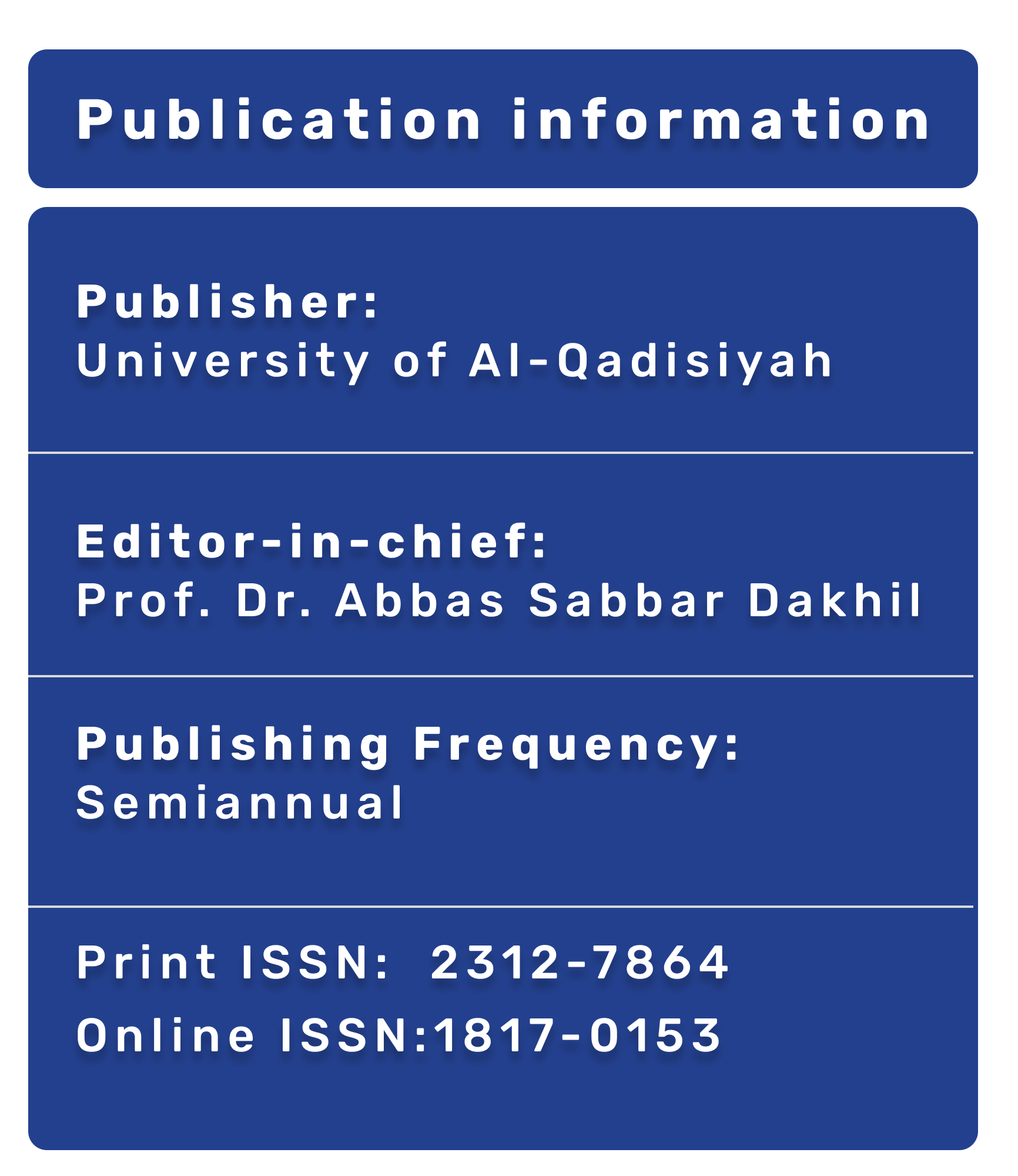Most read articles by the same author(s)
- Ahmed M Sultan, Najah R Hadi, Bassim I. Mohammad, Effect of montelukast on progression of atherosclerosis , AL-QADISIYAH MEDICAL JOURNAL : Vol. 10 No. 17 (2014)
- Najah R Hadi, Hussam H Sahib, Bassim I Mohammad, Antiatherosclerotic potential of aspirin: Antioxidant and anti-inflammatory approaches , AL-QADISIYAH MEDICAL JOURNAL : Vol. 9 No. 16 (2013)








